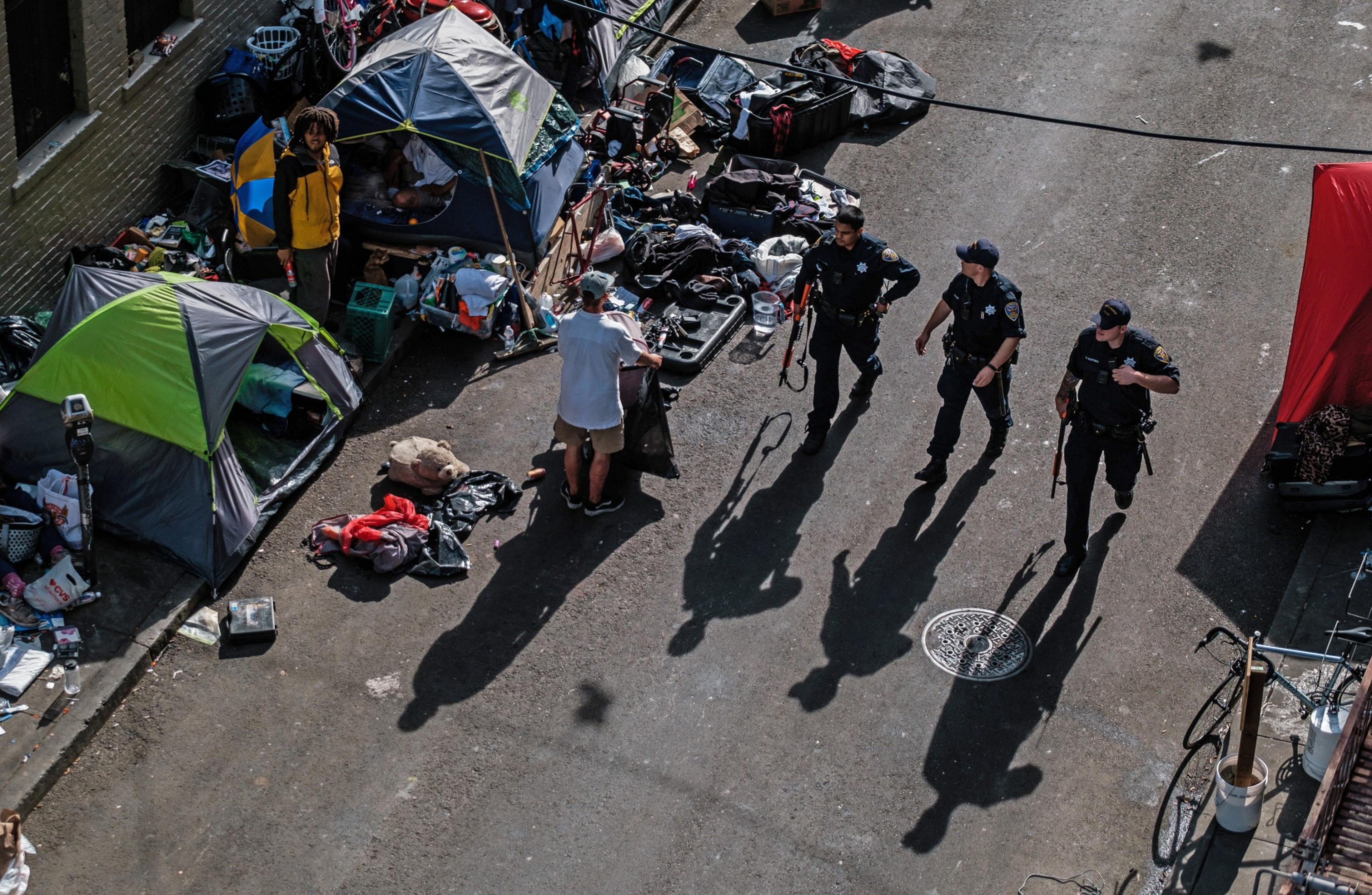The San Francisco Police Department has authorized its officers to enforce anti-camping laws against people who have reasonable access to shelter or housing, according to a memo shared with The Standard.
The city has retracted guidance offered to police officers in January instructing them not to enforce, or threaten to enforce, laws prohibiting people from sitting, lying down or lodging in public spaces.
According to a police bulletin dated Oct. 18, officers are again permitted to enforce such laws against people who decline a specific offer of shelter or otherwise have access to shelter or housing.
The bulletin instructs officers to assume people camping on the city’s streets are involuntarily homeless until they obtain confirmation to the contrary. The new policy gives homeless people a minimum of 15 minutes to decide whether they want to accept the city’s shelter offer.
RELATED: San Francisco Homeless Encampments: Tensions Boil Over on One of City’s Busiest Streets
Officers are required to contact the lieutenant of the city’s homeless outreach operations, photograph the encampment and produce an incident report that details how they confirmed the individual was voluntarily homeless. The bulletin also instructs police to consider any special needs the homeless person may have.
Police are still allowed to enforce all other laws unrelated to sitting, lying or camping in public, regardless of the person’s housing status.

The bulletin comes as the city battles a lawsuit filed by a local advocacy group called the Coalition on Homelessness, which alleges the city violated the constitutional rights of homeless people by enforcing anti-camping laws without offering shelter.
The coalition also alleged the city violated its own policies by destroying and confiscating the property of homeless people without providing a method of retrieval. In some cases, it said this led to the loss of medication, documentation and family heirlooms.
In December, U.S. Magistrate Judge Donna Ryu sided with the coalition and issued a preliminary injunction—a rare type of ruling before any decision is made in a case—restricting the city’s enforcement of anti-camping laws against people who are considered “involuntarily homeless.”
The City Attorney’s Office appealed the injunction, arguing it too broadly defined involuntary homelessness by requiring the city to provide enough shelter beds for every homeless person before enforcing anti-camping laws against any individual.

The city argued it should be allowed to enforce public lodging laws against people who decline an offer of shelter, which the court found the two parties agreed on in September.
John Do, senior staff attorney with the American Civil Liberties Union of Northern California who’s representing the coalition, told The Standard he remains skeptical of whether the city will follow the policies laid out in the police bulletin. The court previously denied the coalition’s request to appoint a monitor to keep tabs on the city’s operations.
“At the end of the day, the real test will be how it’s implemented. … The city has a history of not following its own policies,” Do said.

There are roughly 4,000 people sleeping on the city’s streets on any given night while the city maintains just over 3,000 shelter beds between 90% and 95% capacity.
As of Thursday, 360 people are on a waiting list for shelter as the city struggles to connect with applicants by the time a bed becomes available.
The city’s outreach teams have seen more success in transitioning people from the streets into shelters since the injunction—an improvement the city attributes to an increase in permanent supportive housing units. However, the number of encampments has also increased.
